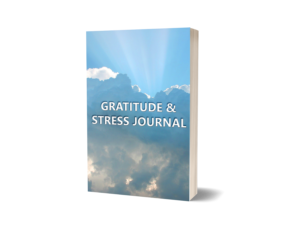Does life in the recovery process seem hectic? Do you think “I know I’m forgetting something?” Do you blame yourself when you forget? Do you think it’s part of your “problem”?
You are not alone! If I could retain more than a third of the massive amount of information I’m bombarded with daily, it would be remarkable. We as humans can’t — and shouldn’t remember everything. Most information is not important enough for us to store and do something with.
Reflecting on Useful Information to Help Your Recovery
It’s not enough for me to just remember useful information. If I truly want to learn something meaningful, I need to take the time to reflect on it. I need to let it roll around in my mind and see how it relates to me. I need to understand it on many different levels. And I need to capture those thoughts for future use along my recovery path.
Examples of Learning in the Recovery Process
Consider this example to better understand what I’m talking about. There are three types of learners, whether in school or in life. One can’t remember anything from any of their courses. A second type of learner just spews out everything their professor, mentor, or knowledge source says. Finally, a third, who takes the time to take notes on what is said while learning. Then, while reflecting, this learner tries to connect the new knowledge with other concepts they’ve learned over time.
Writing to Reduce Stress!
Journaling can help you be like the last type of learner, the one who makes good use of their lessons and knows how to thrive in today’s knowledge economy.
When I think back to when I was in college, or any time when I’ve tried to learn and retain information, I remember how stressed I got each day. I worked hard just trying to remember all of the information. Today, if I tried to remember it all without writing it down, I’d be stressed out. But I’ve learned how to reduce that stress. How? I benefit from doing a brain dump in a planner or journal. I’ve learned I don’t have to keep everything in in my head anymore. My mind is free to focus on more important things.
As an old adage says: “A short pencil is better than a long memory.”
Write it Down for Better Retention
It’s a fact that writing something down allows your brain to remember it better than if you didn’t. Why? Your brain stores the information deeper into the long-term memory. So the very act of taking time to write in your journal gives you the opportunity to think over important events that occurred in your day. That means you’re “experiencing” your thoughts, feelings and actions more than once.
Writing these events down allows you to reflect on what they mean. What you can learn from them? Journaling can enhance your decision-making skills for problems you encounter in the future and also make you a better critical thinker.
Recovery Requires Clearer Thinking
Let’s face it: The recovery process is hard work (but it’s worth it!) We are asking our thoughts to move away from fake props and supports. We have to really THINK. I’ve learned that, when I spend time writing down my thoughts and ideas, I inevitably develop clearer thinking. I encourage you to try journaling. It allows you to structure your ideas and arguments in a way that helps you communicate with others better.
Most importantly, journaling helps you learn about yourself, discover who you really are and clarify your life’s story. It gives you a chance to see if what you did today could be done differently, and hopefully better, in the future. In my recovery, journaling is one of the most important steps I’ve taken.
So now what?
My Free Gift to Help You in Your Addiction Recovery Process
Life easily overwhelmed me at the beginning of my addiction recovery. A counselor in rehab gave me the idea that journaling could help me sort things out. I was skeptical that it would work. Eventually, I decided to try out this journaling thing anyway and was surprised with the results. Compared to back then, my stress level is minimal. But my stress hasn’t magically gone away just because I stopped using. Journaling is still an invaluable way for me to get some relief. Now I want my readers to experience this way of relieving stress.
There were many times that I wished I had a journal that was more than just a notebook. Something that had guides, prompts, and practical help. That’s why I created this Gratitude & Stress Journal. It’s my free gift to you, to help you get started with, or move forward with your recovery process. I’m really excited to give this journal to you and help you make the most of it! Just CLICK HERE to get your copy now.





